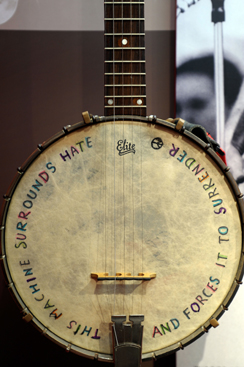Passage: Maximilian Schell and Pete Seeger
It happened this week:
Yesterday in Innsbruck, Austria, actor Maximilian Schell, a fugitive from Hitler who became a staple of Hollywood films, died at the age of 83.
Schell was perhaps best known for his role as a defense attorney in the 1961 movie "Judgment at Nuremberg," a performance that earned him an Academy Award.
Earlier in the week, we lost an American troubadour who sailed against the current.
Folksinger and activist Pete Seeger died Monday in New York.
Born into a musical family in 1919, Seeger dropped out of Harvard to travel the country on freight trains with folksinger Woody Guthrie, who offered him useful advice, as Seeger told Anthony Mason a few years back:
"He says, 'Pete, put your banjo on your back. Go in, buy a nickel beer and sip it slow as you can. Sooner or later somebody will say, Kid, I got a quarter for you if you pick us a tune. Now, you swing around and play your best song.'"
Seeger went on to write folk classics such as "If I Had a Hammer."
His refusal to testify about his past Communist Party membership won him a contempt of Congress conviction in 1961, later reversed on appeal.
His opponents on the right tried to protest Seeger's performances, but to no avail. "All they did was give me free publicity and sell more tickets," the singer said.
Pete Seeger helped lead the folk music revival of the 1950s and '60s, and also helped to make "We Shall Overcome" a civil rights anthem.
In a statement this week, President Obama said, "Pete Seeger believed deeply in the power of song," adding, "And he always invited us to sing along."
Pete Seeger was 94.

